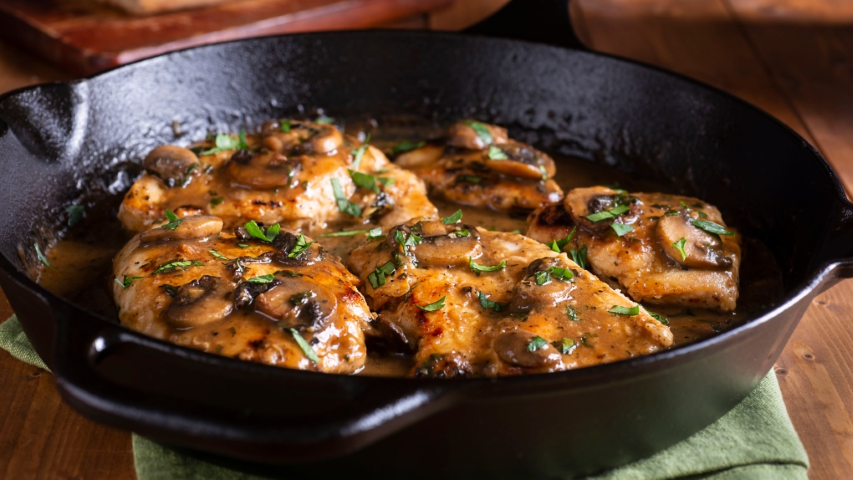
The safest method to ensure poultry is cooked thoroughly and meets food safety standards is by cooking it to an internal temperature of 165 degrees Fahrenheit. (rudisill/E+/Getty Images)
In the heart of your kitchen, a subtle danger might be lurking, hidden in a practice passed down through generations. You've likely been taught to rinse raw chicken before cooking, a habit ingrained in many households. However, recent findings by food safety experts are shattering this long-held belief, revealing the potential risks associated with this seemingly innocent act.
Contrary to popular belief, rinsing chicken can pose significant health hazards. According to the U.S. Department of Agriculture (USDA) and culinary experts, washing poultry before cooking can inadvertently spread harmful bacteria, such as salmonella, across your kitchen surfaces. Startlingly, a USDA study discovered traces of bacteria in the sinks of 60 per cent of individuals who rinsed raw chicken.
Shawn Matijevich, a seasoned chef-instructor, emphasizes the inadvertent consequences of this practice. He explains how even a small amount of bacteria can easily contaminate various surfaces, potentially leading to cross-contamination with other ingredients.
Moreover, the prevailing wisdom of using vinegar, lemon juice, or saltwater to sanitize chicken has been debunked by scientific research. Despite claims of germ-killing properties, these methods fail to eliminate bacteria effectively.
So, what's the alternative? Rather than rinsing chicken, culinary experts advocate for a simple yet effective solution: using paper towels to pat the meat dry. By absorbing excess moisture, paper towels reduce the risk of bacterial spread, safeguarding your kitchen from potential contamination.
Furthermore, adopting additional precautions can further mitigate risks. Using separate cutting boards for poultry and other ingredients, handling raw meat as the final step in meal preparation, and diligently sanitizing kitchen tools are recommended practices to minimize cross-contamination.
In light of the ongoing pandemic and the escalating concerns over foodborne illnesses, prioritizing food safety measures in your kitchen is paramount. By heeding expert advice and adopting best practices, you can enjoy delicious meals while safeguarding your health and well-being.















